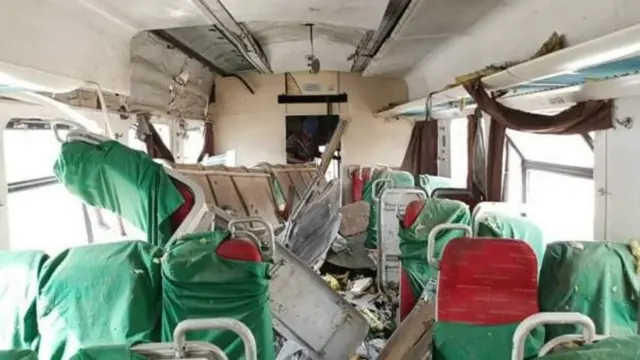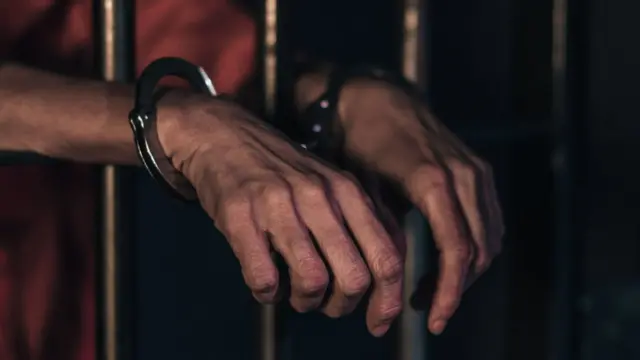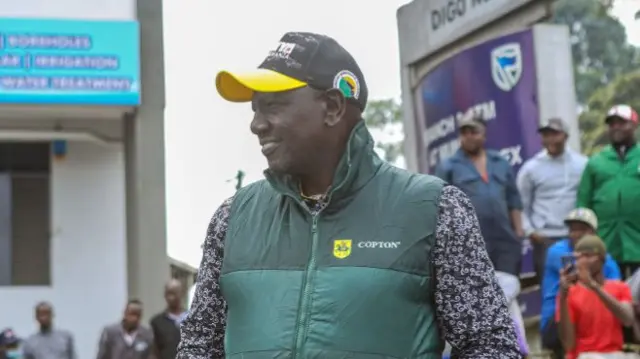At least 33 die in Kenya as bus plunges into riverpublished at 08:00 BST 25 July 2022
Richard Kagoe
BBC News, Nairobi
At least 33 people have been killed and several others injured in central Kenya after a bus veered off a bridge and plunged into a river.
The authorities say that 10 people survived the Sunday night accident.
The vehicle was travelling from the town of Meru to the coastal city of Mombasa when the accident happened.
Police say preliminary investigations suggest the brakes may have failed.
A search and rescue operation is under way and the death toll is expected to rise.
Images from the scene showed the mangled wreckage of the bus with the roof completely ripped off and personal belongings strewn all over.
The bus is said to have veered off the bridge and plunged some 40m below into the Nithi River.
The incident is the latest in a series of deadly road accidents in Kenya.




